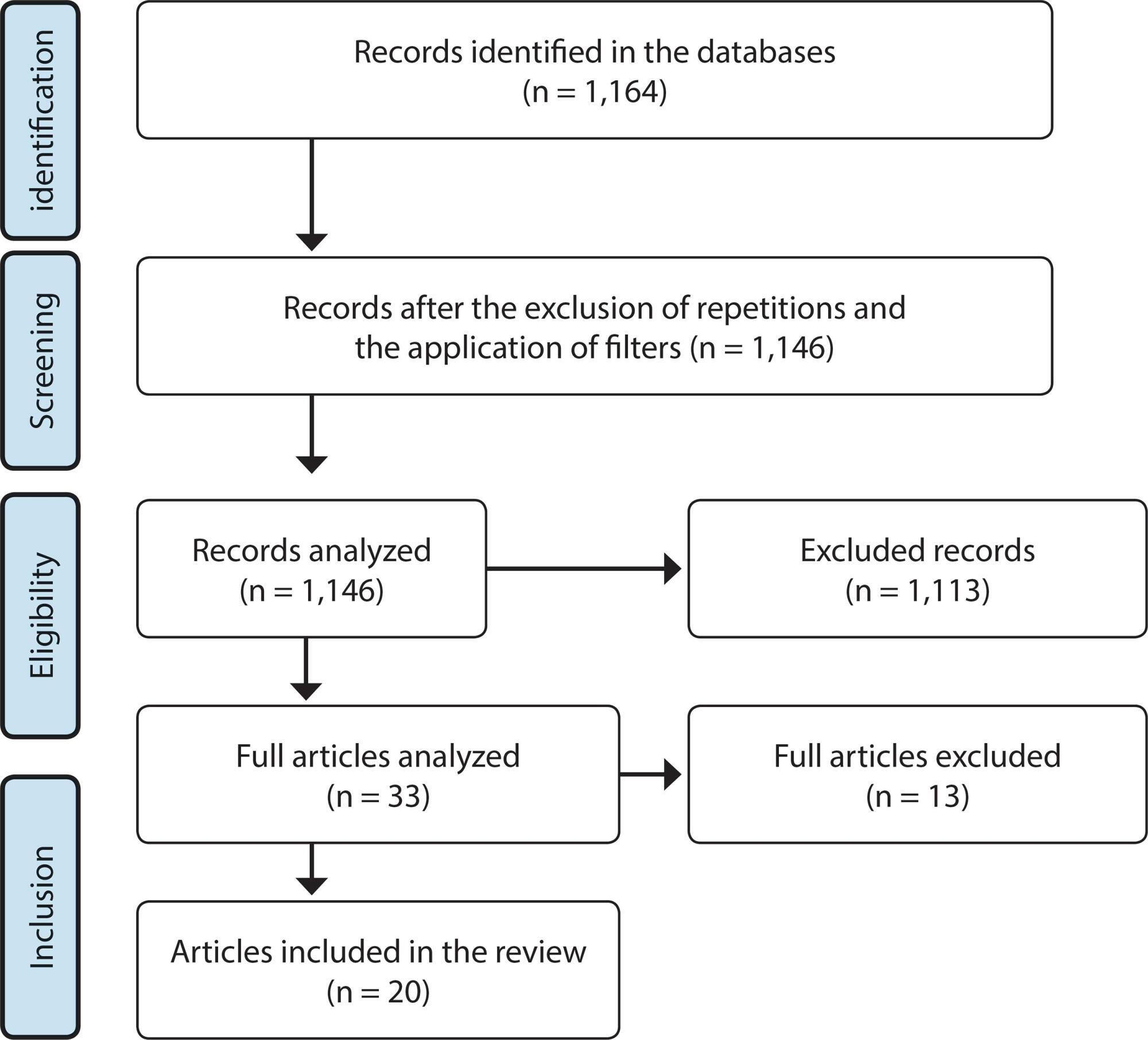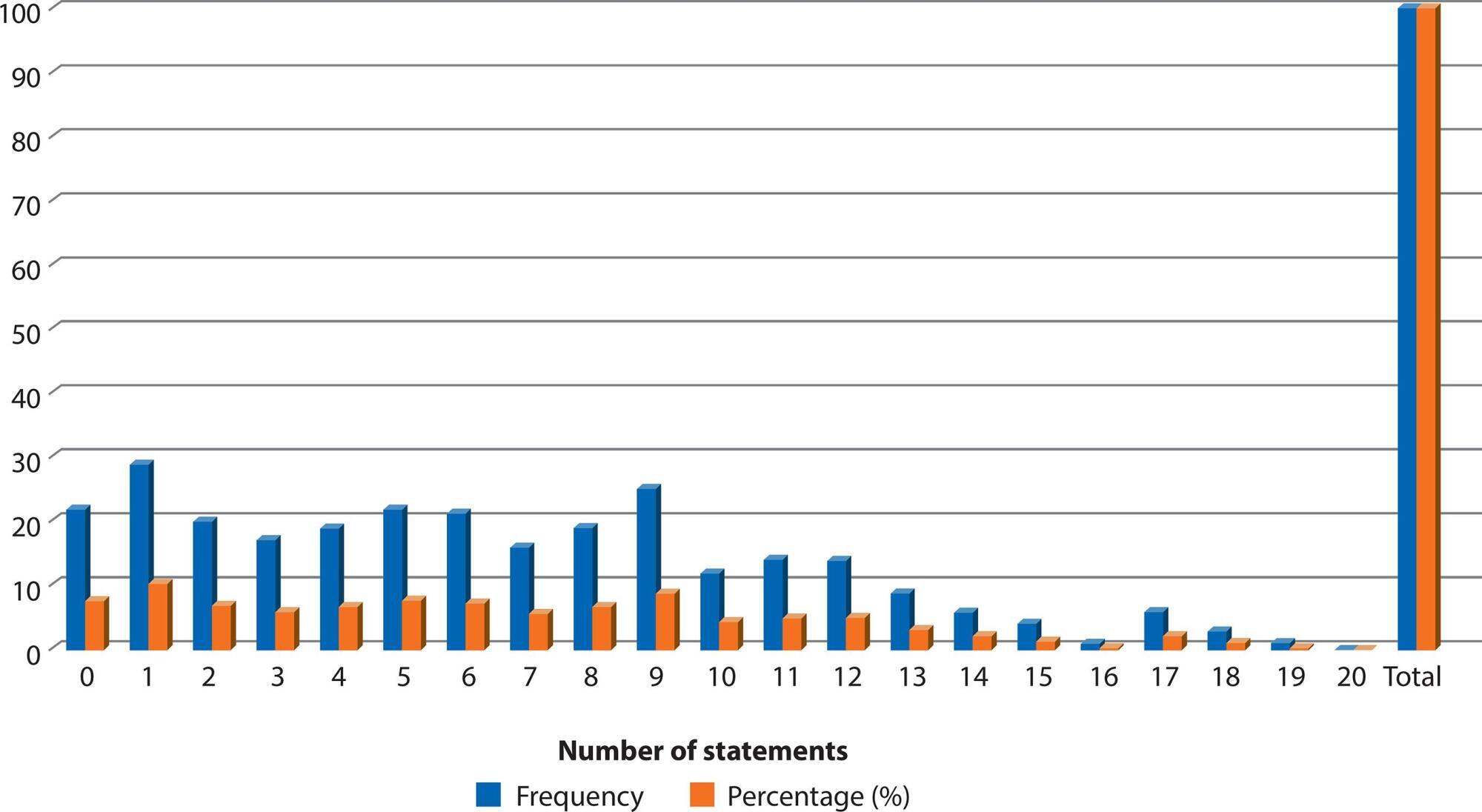-
ORIGINAL ARTICLE
Time and quality of admissions: nursing workload
Revista Brasileira de Enfermagem. 2020;73(5):e20190267
07-06-2020
Resumo
ORIGINAL ARTICLETime and quality of admissions: nursing workload
Revista Brasileira de Enfermagem. 2020;73(5):e20190267
07-06-2020DOI 10.1590/0034-7167-2019-0267
Visualizações0ABSTRACT
Objectives:
to measure the average time spent by the nursing staff during patient admission and investigate their compliance with the activities described by the Nursing Interventions Classification; evaluate the degree of interference in the workload of the team.
Methods:
observational with time measurement through software. We followed 199 admissions made by the nursing staff in seven units, using two validated instruments. Total scores ≥ 70% and 50% validated the process.
Results:
the average time of nurses ranged from 5.5 (standard deviation = 2.3) to 13 (standard deviation = 1.1) minutes; and the auxiliary / technician, between 4.7 (standard deviation = 2.1) and 6.8 (standard deviation = 2.0) minutes (p ≤ 0.01). We qualified six admissions made by nurses and 33 by assistants/technicians. The intervention spent 16.3% to 31.5% of the working hours of the team.
Conclusions:
admission impacts nursing workload and needs to be considered both in the measurement of activities and in the sizing of the nursing staff.
Palavras-chave: Nursing Human ResourcesProcess Assessment (Health Care)Time ManagementWorkflowWorkloadVer mais -
REVIEW
Care of the self in the daily living of nurses: an integrative review
Revista Brasileira de Enfermagem. 2020;73(2):e20180668
03-30-2020
Resumo
REVIEWCare of the self in the daily living of nurses: an integrative review
Revista Brasileira de Enfermagem. 2020;73(2):e20180668
03-30-2020DOI 10.1590/0034-7167-2018-0668
Visualizações0Ver maisABSTRACT
Objectives:
to identify if nurses care for themselves and describe such practices.
Methods:
this is an integrative review of the literature published between 2006 and 2018 and indexed in the Literatura Latino-Americana e do Caribe em Ciências da Saúde, Medical Literature Analysis and Retrieval System Online and Web of Science databases.
Results:
the sample totaled 20 articles, grouped by content similarity in the thematic categories “limits and possibilities for the care of the self”, “knowledge about practices on the care of the self” and “implications of care of the self in professional practice”.
Final considerations:
the knowledge about techniques on caring for the self allows nurses to develop themselves personally and professionally. We suggest to managers and administrators a redirection of the nursing practice that contemplates the strengthening of the nurse as the manager of care and leader of the team, as well as the inclusion of the concept of care of the self in the curricula of undergraduate and graduate nursing courses.

-
ORIGINAL ARTICLE
Common mental disorders in nursing technicians of a university hospital
Revista Brasileira de Enfermagem. 2020;73(1):e20180513
02-10-2020
Resumo
ORIGINAL ARTICLECommon mental disorders in nursing technicians of a university hospital
Revista Brasileira de Enfermagem. 2020;73(1):e20180513
02-10-2020DOI 10.1590/0034-7167-2018-0513
Visualizações0ABSTRACT
Objective:
To verify the prevalence of common mental disorders and associated factors in nursing technicians.
Method:
Cross-sectional analytical study conducted at a university hospital. A questionnaire with sociodemographic, educational and work-related variables and the Self Reporting Questionnaire-20 were used to verify the presence of common mental disorders. Association analysis was performed using the chi-squared test, with a significance level of 5%.
Results:
280 nursing technicians participated in the study. The prevalence of common mental disorders was 46.9%. The variables family income (p=0.021) and working exclusively in health area (p<0.001) were associated with the outcome. There was a higher prevalence of CMD among individuals with a family income below four minimum wages (PR=1.41) and among professionals who worked exclusively in the health area (PR=1.95).
Conclusion:
Approximately half of the nursing technicians of the university hospital presented common mental disorders, which were associated with economic and work-related variables.
Palavras-chave: Hospitals, UniversityMental DisordersMental HealthNursing Human ResourcesOccupational HealthVer mais
-
RESEARCH
Work engagement among participants of residency and professional development programs in nursing
Revista Brasileira de Enfermagem. 2018;71(suppl 4):1487-1492
01-01-2018
Resumo
RESEARCHWork engagement among participants of residency and professional development programs in nursing
Revista Brasileira de Enfermagem. 2018;71(suppl 4):1487-1492
01-01-2018DOI 10.1590/0034-7167-2017-0278
Visualizações0ABSTRACT
Objective:
to assess the levels of engagement at work of nurses enrolled in multi-professional residency and professional development programs in health care of a Brazilian public institution.
Method:
a cross-sectional study with 36 professionals. The data were collected in September 2013, with use of the Utrecht Work Engagement Scale (UWES), composed of seventeen self-evaluation items with the dimensions vigor, dedication and absorption, as well as an overall score.
Results:
the levels of engagement ranged from 3.8 to 4.3, and the standard deviations, between 1.1 and 1.3. Nurses showed average levels on vigor (3.8) and absorption (3.9) dimensions, and high levels on dedication (4,3) and engagement (4.0).
Conclusion:
the professionals presented good levels of energy, resilience, enthusiasm and involvement with the work. They are satisfied with the activity and are dedicated to it, which promotes the acquisition of skills and competences along the in-service training, ensuring a future professional practice of quality.
Palavras-chave: Education in NursingInternship and ResidencyNursingNursing Human ResourcesStaff DevelopmentVer mais -
PESQUISA
Unemployment and psychological distress in nurses
Revista Brasileira de Enfermagem. 2015;68(5):775-782
01-01-2015
Resumo
PESQUISAUnemployment and psychological distress in nurses
Revista Brasileira de Enfermagem. 2015;68(5):775-782
01-01-2015DOI 10.1590/0034-7167.2015680502i
Visualizações0Ver maisABSTRACT
Objective:
to assess psychological distress in nurses searching for their first job, especially symptoms of depression, and identify the factors that caused mental suffering, and how these nurses cope with the situation.
Method:
this was a qualitative study carried out with unemployed nurses who had graduated less than two years before the time of the study, and were residents of the town of Assis in the Brazilian state of São Paulo. Data were gathered by means of semi-structured interviews, content analysis, and application of the Beck Depression Inventory psychometric scale.
Results:
of the 14 nurses that participated, three had scores on the psychometric scale indicative of depression. Participants reported psychological distress related to unemployment, poor university education, and surplus labor due to the large number of graduates and lack of jobs, as well as a culture of employment centered on professionals’ social networks. The unemployed nurses did not have effective ways of coping.
Conclusion:
unemployment promoted psychological distress among the new nurses, especially symptoms of depression, without effective means of coping.



